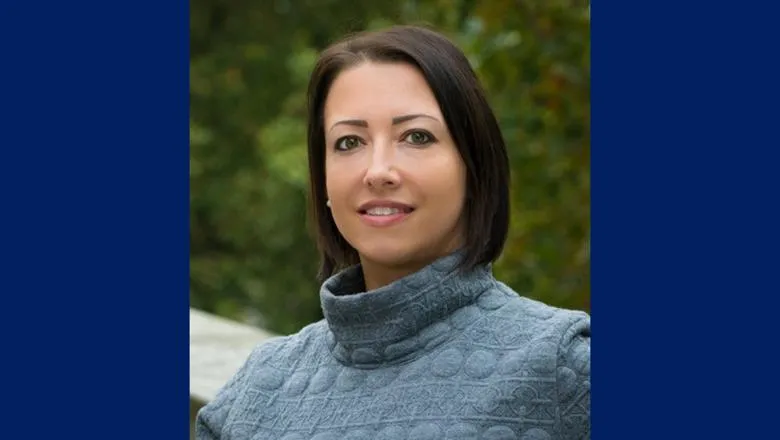08 March 2019
#WomenOfKings - Maria Kordowicz
Celebrating and elevating King’s women for International Women's Day.

It's International Women's Day on Friday 8 March – a global day celebrating the social, economic, cultural and political achievements of women. This year's theme is Balance for Better, which calls for a more gender-balanced society. From the board room to the government, media coverage to employment, gender balance is essential for economies and communities to thrive.
To celebrate International Women's Day, we spoke to women from King's Faculty of Life Science & Medicine about their careers, inspirations and what drives them.
'I find lecturing and teaching highly rewarding and I hope I help to shape future NHS leaders by enabling a people-centred approach to management.'
Dr Maria Kordowicz is Quality Improvement Research Fellow in the School of Population Health & Environmental Sciences, Programme Lead for the MSc Public Health and MPH Module Lead for Management in Organisations.
She is also Research & Communications Programme Manager for the Transforming Outcomes & Health Economics Through Imaging (TOHETI) project.
What are you proudest of in your career?
Of choosing a career in which I never stop learning. Not a day goes by at work where I am not happy!
Why did you decide to go into this field of study/research/work?
I have a passion for observing the organisational dynamics of healthcare settings. I find lecturing and teaching highly rewarding and I hope I help to shape future NHS leaders by enabling a people-centred approach to management. I also have a career which offers me flexibility as a parent, which is my most important role by far (I am writing this whilst on maternity leave with my three-week-old baby sleeping across my lap). It was a no brainer!
What would you tell women who want to study in your field?
Women are well represented in the social sciences but often not in senior academic and/or leadership positions. Be confident in the value of your expertise. Be the change you want to see.
Who or what made you want to work in this field? How has your field changed since you started, and where do you see it going in the future?
It is not possible to isolate one determining factor. I have always been interested in studying people, their perceptions and interactions, and have wanted to make a difference to the health and social care sector. I am so grateful to work with such bright, insightful and supportive colleagues.
Since I started working in health as a healthcare assistant aged 20 (almost 20 years ago now!), then as a psychologist, a senior manager and now as a research fellow, I have observed the proliferation of short-lived and usually underfunded policy initiatives. These undermine a sense of worker stability and lead to greater numbers of employees suffering from occupational stress. I see a similar neoliberal wave taking hold of higher education. I hope the future will bring a greater desire for building public sector organisations with the value of compassion at their core and that organisational research has an increasing contribution in making this a reality.
